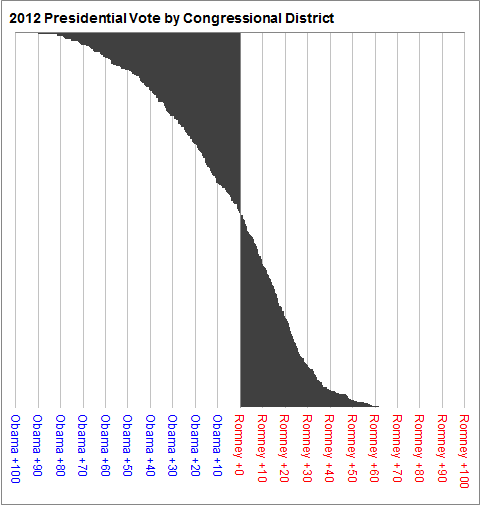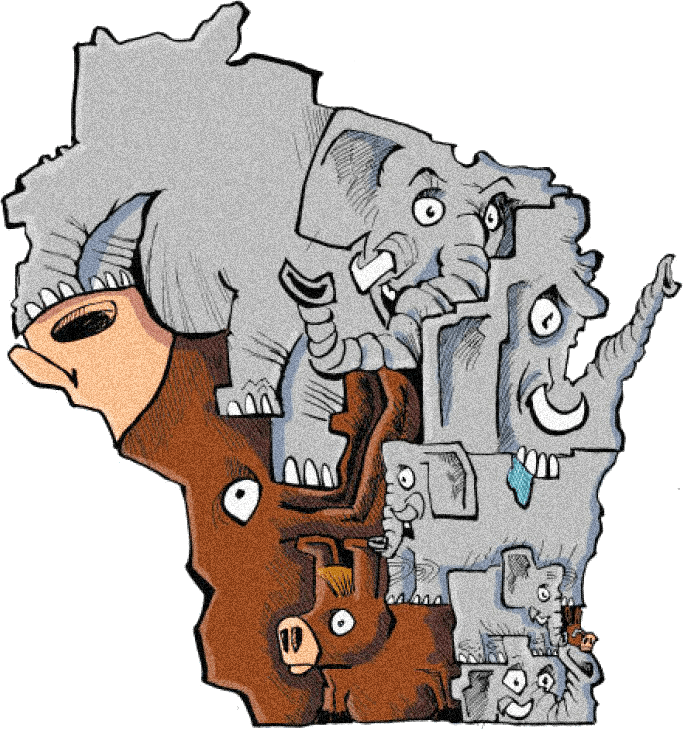Politico leads its website Monday with an article pressing the argument that Republican gerrymandering could actually end up hurting the party. By creating safe districts where Republicans have to worry more about losing a primary than losing the general election, the GOP is being pushed rightward, potentially hurting its national prospects.
These types of arguments are nothing new. Neither are the fairly compelling arguments against them.
First, the underlying assumption about the cause of district polarization is wrong. As I’ve suggested before, the natural geographic concentration of the Democratic vote is more responsible for polarized districts than any efforts by Republicans. For that matter, states where Democrats controlled the redistricting process yielded pretty heavily Republican districts as well. Illinois has two evenly matched districts (one represented by a Republican, one by a Democrat), but the remainder of the Republican-leaning districts went for Mitt Romney by healthy margins (even as he lost nationally by four points).
Remember, the primary goal of redistricting isn’t to create safe districts for your party (though that is probably a secondary goal). The primary goal is to place as many supporters of the other party into as few districts as possible, leaving your supporters in a lot of districts that are just partisan enough to fend off general election challenges.
This leads to the second point: If Politico is correct, then Democrats should be in big trouble, because there are more overwhelmingly Democratic districts than there are overwhelmingly Republican ones. The New York Times’ Nate Silver, making a related point, has created the following chart…

…which shows the cumulative number of districts sorted by Obama’s share of the vote.
The asymmetry is self-evident. There were 44 Congressional districts in which Mr. Obama won by at least 50 percentage points last year, compared with only eight for Mr. Romney. These hyper-partisan districts are far past the point where a Democratic candidate for Congress could lose under almost any circumstance, so they create wasted votes for Democrats.
Put differently, 68 Republicans — 29 percent of the caucus — occupy what we might call heavily Republican districts: districts that voted 15 points more Republican than the country as a whole. Eighty-three Democrats — 41 percent of the Democratic caucus — occupy districts that voted 15 points more Democratic than the country as a whole….
…read more…




